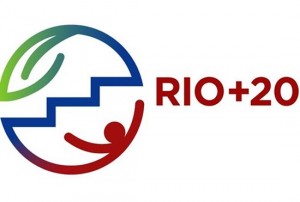Moving on From Rio+20
Jul 2nd, 2012 | By admin | Category: Family Planning, Rio+20 Earth Summit by Suzanne York, HowMany.org – An experienced and learned colleague of mine asked me one evening at the start of the UN Conference on Sustainable Development (Rio+20) if it really mattered what issues made it or didn’t make it into the official Rio+20 text known as “The Future We Want”.
by Suzanne York, HowMany.org – An experienced and learned colleague of mine asked me one evening at the start of the UN Conference on Sustainable Development (Rio+20) if it really mattered what issues made it or didn’t make it into the official Rio+20 text known as “The Future We Want”.
Symbolically, it seemed important to have critical issues on women’s rights, reproductive health and rights, and rights for nature, youth and indigenous peoples included – not to mention a host of other environmental initiatives. Yet at the same time, the Rio+20 text isn’t a binding agreement, and perhaps what really matters is the coming together of disparate groups outside the negotiations.
Concerning women’s rights, there were some references in the text and some reason to feel encouragement. There was mention of gender equality and promoting women’s leadership roles, for example, as well as a commitment to implement the principles from the 1994 UN Population Conference in Cairo.
However, the text was silent on reproductive rights, mainly due to the efforts by the Vatican. There are 215 million women in the world who want access to contraceptives but do not have it. It is for these women and their families, communities and environment that sexual and reproductive rights be recognized.
The Women’s Major Group, which represents 200 civil society women’s organizations from around the world, issued a statement on their disappointment and outrage with the outcome document. According to Anita Nayar, with the Development Alternatives with Women for A New Era (DAWN) , “The lack of recognition of reproductive rights as essential to sustainable development was especially disappointing. Women worldwide are outraged that governments failed to recognize women’s reproductive rights as a central aspect of gender equality and sustainable development in the Rio+20 Outcome Document. Reproductive rights are universally recognized as human rights.”
More and more people are looking past national governments and finding hope in local governments, civil society initiatives, social entrepreneurs, and simply from what is taking place on the streets. At one side event on women and climate, Vandana Shiva, a physicist, environmental activist and eco-feminist from India, said she didn’t come to Rio for the text, that she came for solidarity and for what is happening outside the official talks.
And ultimately that is the take-away from Rio. Most people had low expectations for the meeting, but the connections and support networks made outside the official Rio+20 talks are what count and ultimately will have a bigger impact. We can’t sit back and wait for heads of state to act. It is up to citizens the world over to make a healthy and sustainable planet for present and future generations.
